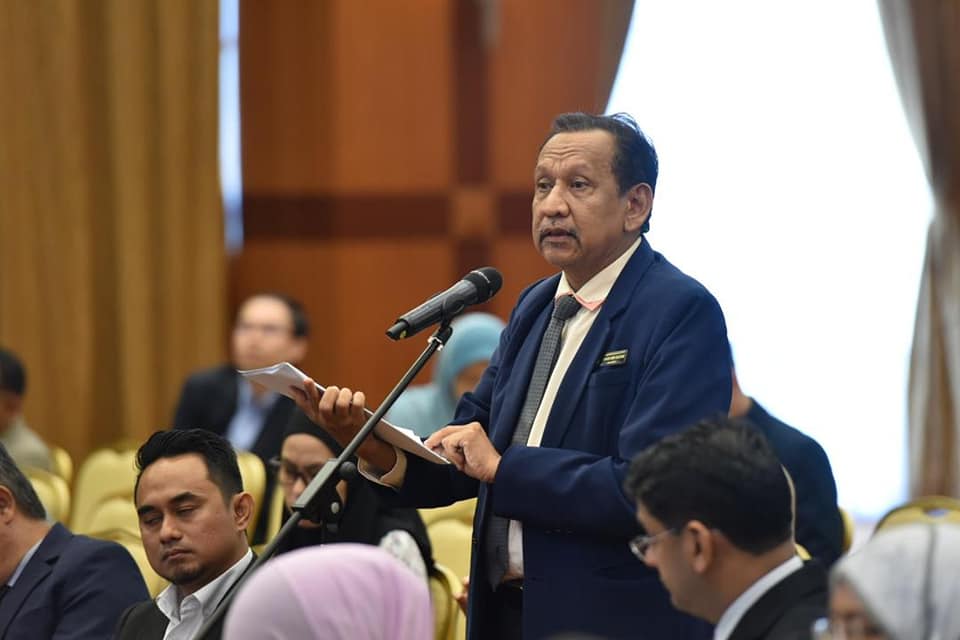KUALA LUMPUR, Sept 3 – Further complaints have emerged over what is described by critics as exclusive membership of the Health White Paper (HWP) Advisory Council that comprises mostly MDs.
Of the 13-member HWP Advisory Council co-chaired by former Health Minister Dr S. Subramaniam and former Employees Provident Fund (EPF) CEO Shahril Ridza Ridzuan, 10 are medical doctors, though most of them are academics involved in policy besides clinical work.
The Malaysian Pharmacists Society (MPS) expressed disappointment that the HWP Advisory Council excluded pharmacy practice and policy experts.
“The Ministry of Health (MOH) in its media release has stated that it intends to ensure the HWP is holistic, comprehensive and inclusive.
“However, without a member with pharmacy practice and policy expertise, there is a legitimate concern that the Advisory Council’s output may not be holistic, comprehensive or inclusive. Placing the role of pharmacists out of the equation is considered very antithesis towards advancing health care in Malaysia,” MPS president Amrahi Buang said in a statement yesterday.
He pointed out that pharmacists contribute to a variety of settings, including hospitals, primary health care facilities, community pharmacies, manufacturing and non-manufacturing pharmaceutical industries, academia, clinical research centres, as well as MOH’s pharmaceutical services division, pharmaceutical enforcement division, and the National Pharmaceutical Regulatory Agency (NPRA).
“In fact, from a patients’ perspective, a huge chunk of their health care expenditure is on medicines. Therefore, for the HWP to gain bipartisan support, medicine experts (ie: pharmacists) must be invited to the table.”
Amrahi said pharmacists at a stakeholder meeting with MOH last July had submitted proposals on five areas of health care reform: equitable access and continuity of care; new care models with emphasis on prevention, primary care, and community empowerment; sustainable health care funding and strategic purchasing; systemic structural improvements; and establishment of autonomous bodies to monitor reforms.
The Consumers Association of Penang (CAP) complained about the exclusion of representatives of patients and consumers from the HWP Advisory Council.
CAP adviser T. Jeyabalan told Free Malaysia Today (FMT) that the council should include patient and consumer groups, an independent health economist, an environmental health expert, and civil society organisations from different fields.
“We need a broad representation of stakeholders in the council,” he was quoted saying.
Jeyabalan reportedly said any engagements with consumer or patient groups would likely be ad hoc and too late if their feedback is sought only after the HWP is drafted.
“What we’re seeing is a top-down approach. We need a bottom-up approach as well for a more holistic result.”
Sustainable Development Network Malaysia chairman Muhammad Sha’ani Abdullah called for “independent parties” to be included in the HWP Advisory Council, saying that current and former government officials may not be brave enough to highlight failures in the public health care sector.
FMT also reported him complaining about the lack of representatives from Sabah or Sarawak.
Previously, Association of Private Hospitals Malaysia (APHM) president Dr Kuljit Singh complained about the lack of economists and health care financial experts in the HWP Advisory Council.
Council member Prof Dr Syed Mohamed Al-Junid is a health economist who previously worked with the Indonesian government to help implement a social health insurance programme and reforms of the country’s health financing system.
However, the HWP Advisory Council does not have a single member who runs a large business in private health care, like a hospital or pharmacy chain. Private health care spending comprises nearly half of the country’s total expenditure on health.
The HWP Advisory Council comprises the following members:
- Dr S. Subramaniam (former health minister)
- Shahril Ridza Ridzuan (Axiata Group chairman, former managing director of Khazanah Nasional Berhad and former chief executive officer of EPF)
- Dr Jemilah Mahmood (professor and executive director of the Sunway Centre for Planetary Health, Sunway University)
- Prof Norma Mansor (director of the Social Security Research Centre, Universiti Malaya)
- Dr Shahnaz Murad (former Health deputy director-general [research and technical support])
- Prof Dr Adeeba Kamarulzaman (infectious disease professor, Universiti Malaya)
- Prof Dr Syed Mohamed Al-Junid (professor and chair of the Department of Health Policy & Management, Kuwait University)
- Prof Dr Elil Renganathan (public health and policy professor, Sunway University)
- Prof Dr Teo Soo-Hwang (Cancer Research Malaysia chief scientific officer)
- Dr Koh Kar Chai (Malaysian Medical Association president)
- Dr Khor Swee Kheng (assistant professor at the Saw Swee Hock School of Public Health, National University of Singapore)
- Chong Mei Chan (associate professor at the Department of Nursing Science, Universiti Malaya)
- Dr Helmy Haja Mydin (medical specialist at Pantai Hospital and chief executive officer of the Social & Economic Research Initiative)
Health Minister Khairy Jamaluddin, who announced the formation of the HWP Advisory Council, is planning to visit Sarawak this Monday, where a town hall session will be held in Sarawak General Hospital in Kuching on the HWP.
He intends to table the HWP – which is tasked to propose health care reforms spanning a 15-year period – in Parliament by year-end, although this may not come to pass if the 15th general election is held before then as widely speculated.








